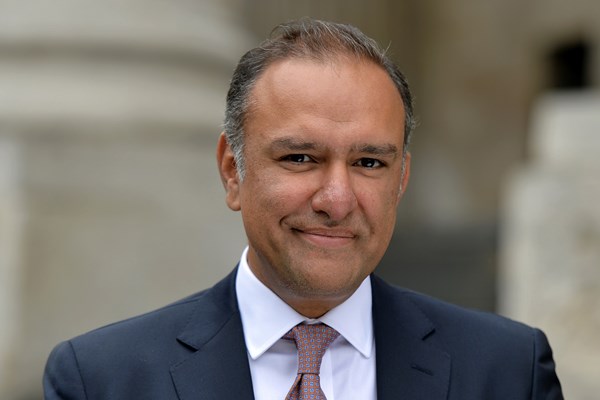30 May 2023
As the world grapples with the urgent need to mitigate climate change and reduce greenhouse gas emissions, the transition to sustainable and clean energy sources has gained significant momentum. The year 2023 marks a crucial period for global infrastructure, as nations and organizations continue to adopt and implement energy transition trends aimed at creating a greener and more sustainable future. In this article, we will explore some of the key global infrastructure energy transition trends that are shaping the year 2023.
Renewable Energy Integration
Renewable energy sources such as solar, wind and hydropower continue to witness remarkable growth and are increasingly being integrated into existing energy infrastructure. In 2023, we can expect an accelerated deployment of renewable energy projects, including large-scale solar and wind farms. Governments and businesses are investing heavily in renewable energy infrastructure, enabling a substantial shift away from fossil fuels and promoting a cleaner energy mix.
Electrification of Transportation:
The electrification of transportation is gaining considerable traction worldwide, contributing significantly to the energy transition. We can anticipate a rapid expansion of electric vehicle (EV) charging infrastructure, incentivised by government policies and growing consumer demand. Investments in charging stations, smart grids and battery technology advancements are driving the electrification trend, reducing reliance on fossil fuels for transportation and promoting a sustainable mobility ecosystem.
 1
1
Grid Modernisation & Energy Storage
The integration of intermittent renewable energy sources necessitates the modernization of electrical grids and the adoption of advanced energy storage solutions. We will witness an increased focus on grid resilience, flexibility and decentralization. Smart grid technologies, including demand response systems and energy management software, will optimize energy usage and improve the stability and reliability of the grid. Moreover, the deployment of large-scale energy storage systems, such as lithium-ion batteries and pumped hydro storage, will enable efficient energy management and enhance grid integration of renewables.
Green Hydrogen
Green hydrogen, produced through electrolysis powered by renewable energy, is emerging as a promising energy carrier to decarbonize sectors that are challenging to electrify, such as heavy industry and long-haul transportation. We can expect significant advancements in green hydrogen production, infrastructure, and storage. Governments and private sector players are investing in hydrogen production facilities and establishing hydrogen supply chains, enabling the scaling up of this carbon-neutral energy source.
Energy Efficiency & Building Retrofits
Improving energy efficiency in buildings is a crucial component of the energy transition. There will be a heightened focus on building retrofits, aiming to enhance energy performance and reduce carbon emissions. Governments are implementing stricter energy efficiency standards, providing incentives and promoting sustainable building practices. Energy-efficient technologies, such as smart thermostats, LED lighting and improved insulation, will contribute to reducing energy consumption in residential, commercial and industrial sectors.
Talent Challenges in Infrastructure Investments in Europe
Infrastructure equity investments in Europe have gained prominence in recent years as investors seek stable, long-term returns in a low-interest-rate environment. However, as the demand for infrastructure investments grows, so does the need for talent capable of managing and navigating the complexities of this sector.
Limited Pool of Qualified Professionals
One of the primary challenges is the limited pool of professionals with expertise in infrastructure investments. The specialised nature of the sector requires individuals who possess a deep understanding of infrastructure assets, project finance, regulatory frameworks and risk management. However, the talent pool with experience in these areas is relatively small, resulting in increased competition for qualified professionals.
Competition from Other Industries
The infrastructure sector faces stiff competition from other industries such as private equity, real estate and technology, which also attract top talent. These industries often offer higher compensation packages and more established career paths. As a result, infrastructure equity investment firms in Europe must find ways to attract and retain talented individuals who might otherwise choose alternative sectors.
Multidisciplinary Skills Requirement:
Infrastructure equity investments require professionals with a broad range of skills, including financial modeling, deal structuring, legal and regulatory expertise and knowledge of technical aspects related to infrastructure projects. Finding individuals with a combination of these skills can be challenging, as it often requires a blend of financial, legal and engineering backgrounds.
Geographical & Cultural Expertise
Infrastructure projects often span multiple countries and involve navigating different legal systems, regulations and cultural norms. Having professionals with deep knowledge of specific European markets and understanding the local nuances is crucial for successful infrastructure investments. However, finding talent with both the financial acumen and regional expertise can be a significant challenge.
Retaining & Developing Talent
Once talented individuals are recruited, retaining them in the competitive landscape of infrastructure equity investments can be difficult. Firms must provide attractive compensation packages, career advancement opportunities and a supportive work environment to encourage talent retention. Additionally, investing in ongoing professional development and training programs can help address skill gaps and keep professionals abreast of industry trends.
Conclusion
In 2023, the global infrastructure energy transition is characterised by rapid progress and transformative trends. Renewable energy integration, electrification of transportation, grid modernization, green hydrogen and energy efficiency initiatives are key areas driving the transition towards a cleaner, more sustainable energy future. Governments, businesses, and individuals are increasingly recognising the urgency of these changes and are taking decisive action to address the challenges of climate change. By embracing these trends, the world is moving closer to achieving a low-carbon and resilient energy infrastructure that will benefit future generations.
The talent challenges faced by infrastructure investors in are significant but not insurmountable. To overcome these challenges, firms need to adopt proactive strategies to attract, retain and develop talent with the necessary skill sets. This will need to involve offering competitive compensation, creating clear career progression paths, fostering a diverse and inclusive work environment and investing in specialised training programs. By addressing these talent challenges, infrastructure investors can position themselves for success in Europe's evolving infrastructure investment landscape.
[1] https://www.iea.org/reports/global-ev-outlook-2023
